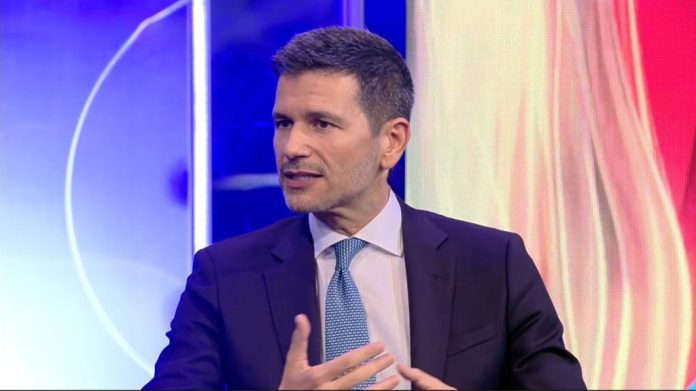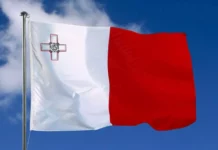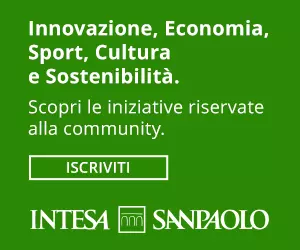RABAT (MOROCCO) (ITALPRESS) – Morocco is a nation looking decisively toward the future, where new opportunities are also emerging for Italy. Speaking in Rabat with Italpress, Ambassador Pasquale Salzano, who took up his post just over two months ago, has already witnessed firsthand the ambitions of a country guided by a forward-looking investment strategy.
Morocco is experiencing strong growth and relations with Italy are excellent. What opportunities may open up for Italian companies in the coming years?
“Morocco is undergoing a highly significant phase of economic transformation, characterized by substantial investment in infrastructure, energy, mobility, and digitalization. This creates tangible opportunities for deeper cooperation with Italy. Italian companies can contribute in many directions: from the design and construction of modern infrastructure, to the supply of advanced technologies, and services related to tourism and hospitality. Small and medium-sized enterprises also play a key role, as they are the backbone of our production system and, thanks to their specialized expertise, can align with Morocco’s development priorities.”
Which sectors appear most promising?
“They range from renewable energy and green hydrogen, to automotive and aerospace, as well as agri-industry, digital technologies, and fintech. This commitment is supported by the coordinated action of the Italian System – CDP, SACE, SIMEST, ICE – which provides financial, insurance, and promotional tools to accompany companies into foreign markets, under the strategic direction of the Ministry of Foreign Affairs. By way of example, I would recall the partnership established last May between OCP (Office Chérifien des Phosphates) and SACE through a €365 million green financing agreement, which offers business-matching opportunities for Italian companies operating in green technologies, mechanical components, and hydraulics. The goal is to foster partnerships that go beyond the simple supply of goods or services, encouraging the exchange of know-how, innovation, and shared growth. In this sense, economic cooperation becomes part of a broader Mediterranean vision oriented toward the future. These prospects are also framed by two important anniversaries to be celebrated in 2025: the bicentenary of the first Treaty of Friendship and Commerce, which marked the beginning of modern relations between Morocco and Italy, and the 150th anniversary of the first diplomatic mission of the Kingdom of Italy to Fez – evidence of a historic bond now finding new and dynamic forms of cooperation.”
Morocco’s outstanding performance at the 2022 World Cup further ignited the passion of a nation already in love with football. This December, the country will once again host the Africa Cup of Nations. What is your assessment of the infrastructure investments underway?
“The sports infrastructure projects currently being carried out in Morocco reflect a long-term strategic vision. The new stadium in Benslimane, together with the renovation of six facilities in Rabat, Marrakech, Agadir, Tangier, Casablanca, and Fez, are concrete examples of the country’s determination to equip itself with modern and sustainable venues. These projects are progressing rapidly and in line with the highest international standards. Particular emphasis is being placed on energy efficiency, digitalization, and the quality of services for spectators. The 2025 Africa Cup of Nations will be a decisive test not only for the sports facilities but also for the wider logistical system, from transport to hospitality. This approach – linking sport to infrastructure development – is also an interesting model for Italian companies, internationally renowned for their engineering, technological, and organizational expertise.”
In 2030, Morocco will be among the host countries of the FIFA World Cup, a global stage that will bring it unprecedented visibility. What can we expect in terms of organization and hospitality?
“The 2030 World Cup will represent a watershed moment for Morocco and for the entire Mediterranean region. It will not be merely a sporting event, but a catalyst for economic and social transformation. In addition to stadiums, the country has launched wide-ranging structural projects: doubling airport capacity to 80 million passengers, extending the high-speed rail network to Marrakech and Agadir, acquiring new trains for urban and intercity mobility, and developing new hotel infrastructure and digital services. These investments will significantly enhance Morocco’s capacity to welcome visitors and will leave a lasting legacy, not only for tourism but also for the local population. For Italy, new avenues of collaboration are opening in sectors ranging from construction and mobility, to hospitality and technological services. This outlook is also consistent with the vision of the Mattei Plan, which Italy has placed at the centre of its engagement in the Mediterranean and Africa: a strategy founded on equal partnerships, sustainable infrastructure, training, and innovation. It is further confirmation that sport – as Minister Tajani often emphasizes – can serve as a powerful instrument of diplomacy, fostering friendship, economic growth, and international openness, fully aligned with the modernization and global outreach agenda promoted by His Majesty the King.”
– photo: Embassy of Italy in Rabat –
(ITALPRESS).















